 | Department of Economics |
| NEWS & MEDIA |
NEWS
Second International Conference on Applied Development Economics- Day 1
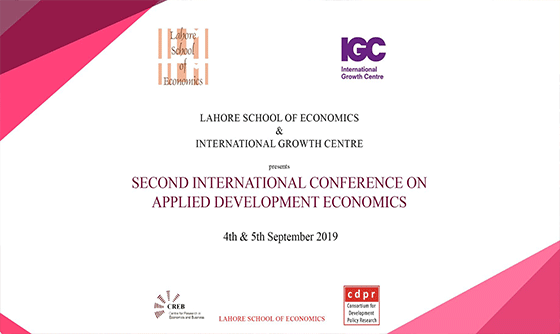
The Lahore School of Economics and International Growth Centre (IGC) jointly organized the Second
International Conference
on Applied Development Economics at the Lahore School of Economics’ Campus from
4-5 September, 2019.
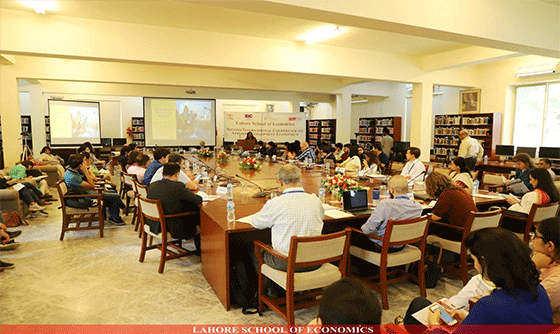
Dr. Shahid Amjad Chaudhry, Rector, Lahore School of Economics gave opening remarks at the conference.
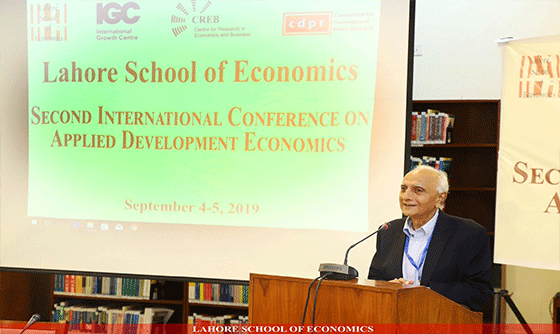
Ghazala Mansuri, World Bank, delivering plenary address on 'when water becomes a hazard': Poverty in
Pakistan has gone down.
Change in access to toilets is consistent with this but very little progress on
child health. Reason? low quality sanitation leading to
poor water quality.
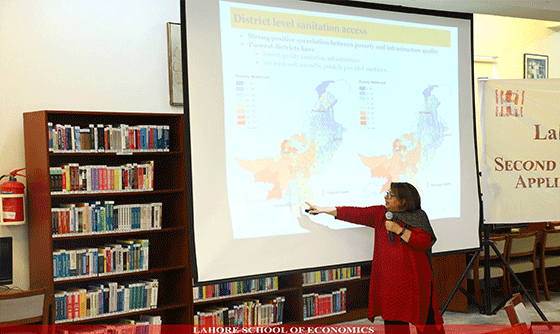
Jonathan deQuidt, Stockholm University, presented on "Can market design help the world’s poor? Evidence
from a lab experiment
on land trade".
"A market design solution, package auctions, applied to reallocating rural land with Kenyan smallholder
farmers in a lab experiment.
Farmers performed very well in complex package auction getting most of the
gains from de-fragmentation and some from sorting".
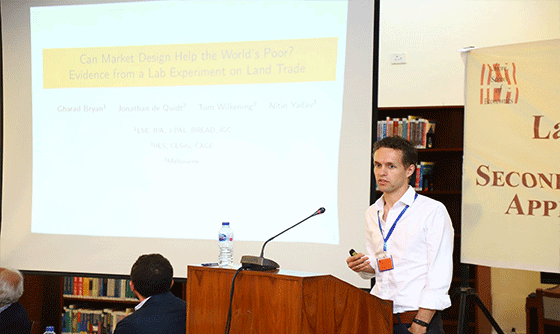
Dr. Jacopo Bonan, Politecnico di Milano, presented the paper by Harounan Kazianga, MariapMendola and
himself on“the Agricultural
Transformation and Farmer's expectations”. The study demonstrated the
effect of extension programs to enhance harvest by introducing
an intervention to increase the reach of
products and services to farmers.
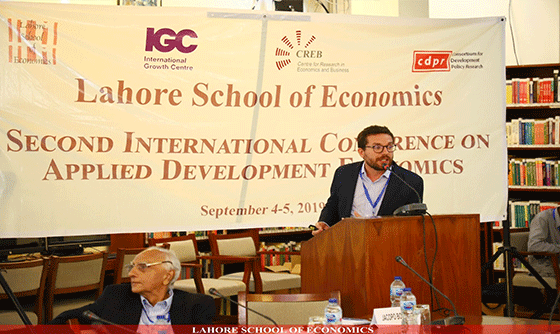
Rabia Arif, Lahore School of Economics, presented her paper on "Heterogeneous effects of emigration" with
Theresa Chaudhry to indicate
the benefits that go beyond the remittance factor which is usually
highlighted. The paper gives a positive outlook on the phenomenon of
emigration with data supported from
local sources and studies.
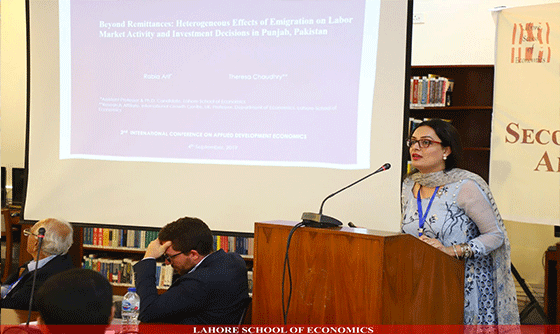
Dr. Hamna Ahmed, Lahore School of Economics, presented her research on 'Encouraging female graduates to
enter the labour force'
along with Mehreen Mahmud, Farah Said and Zunia Tirmazee. Dr. Ahmed applauded
the fact that there was a majority of women
working on this research as well as attending the
Conference. Her research employed an empirical approach to investigate the effect
of role models on
female motivation to join the labour force in Pakistan.
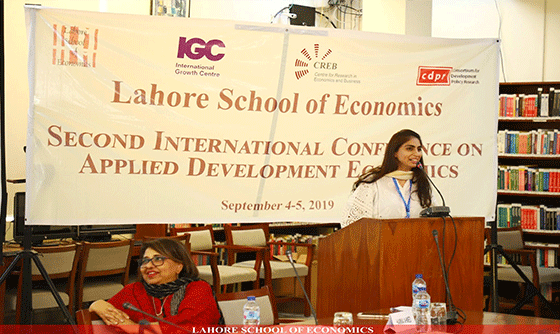
Dr. Ijaz Nabi, International Growth Centre(IGC), discussed Pakistan's chronic fiscal deficit. Since 2000,
sharp increase in consumption,
savings fell, investment rate is flat, tax collection did not improve and
substantial loss of international competitiveness.
Solution: need to strengthen the revenue stream, learning from great local research on the topic. Even
more, should focus on expenditures
since getting it right (not necessarily reducing it) can expand your
fiscal space. Key is improving service delivery!
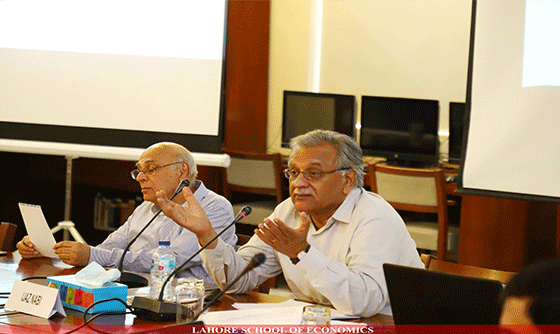
Kate Vyborny, Duke University, presented her paper on "Transport, urban labor markets, and women's
mobility". Vyborny discussed the
effect of increasing women's mobility through a pick-and-drop service
on the urban labour market in the paper 'Transport, urban labour
market and women's mobility' by Erica
Field and herself. The study distinctly focused on women's decision to apply for a job as a result of
increased mobility.
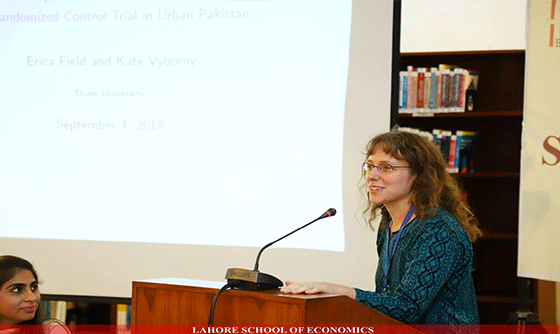
Anjum Nasim, IDEAS, provided a comparison of government expenditures with other countries: Higher on
military and lower on health
and education. The large (32%) interest payments narrows the space for the
government but still need stricter enforcement of fiscal discipline.
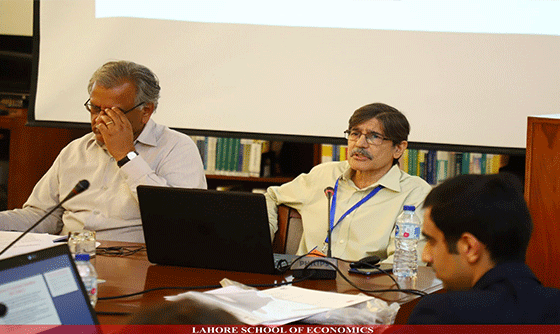
Mahreen Mahmud, University of Oxford, presented on "Cash transfers, aspirations and goal-setting: Impact on female empowerment”.
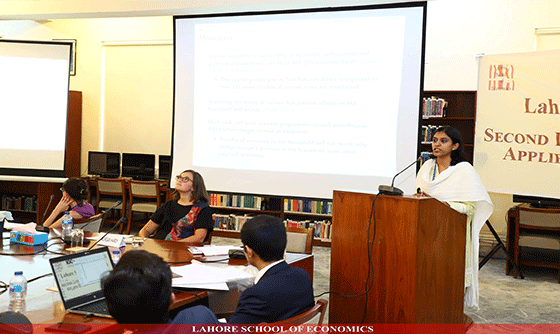
Dr. Morgan Hardy presented her results from her study on the gender profit gap in small businesses.
According to her study, a wide range of
factors are unable to explain why female owners earn less than
men.
Key takeaway: with fewer formal opportunities for women, there is an oversupply of women-entrepreneurs
leading to higher demand scarcity
and lower profits for female-owned businesses.
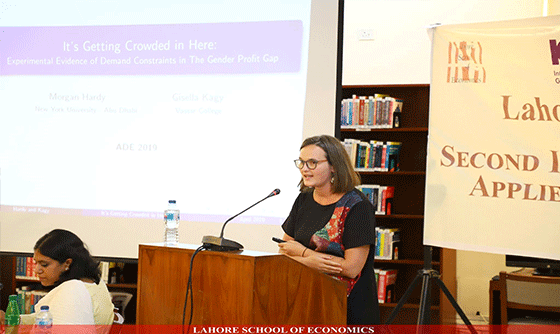
Farah Said, Lahore School of Economics, presented on "Intrahousehold consumption allocation and demand
for agency: A triple experimental
investigation".
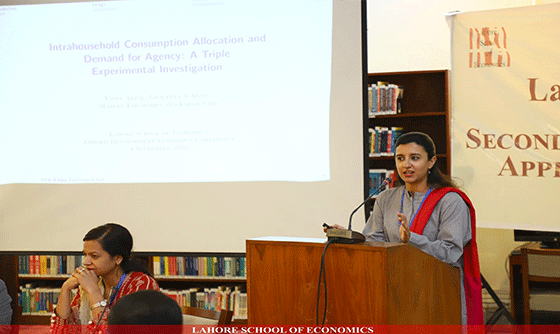
Zubaria Andlib, Quaid- i-Azam University, presented her paper on "Exploring the issue of vulnerable
employment in Pakistan: A case of
female contributing family workers".
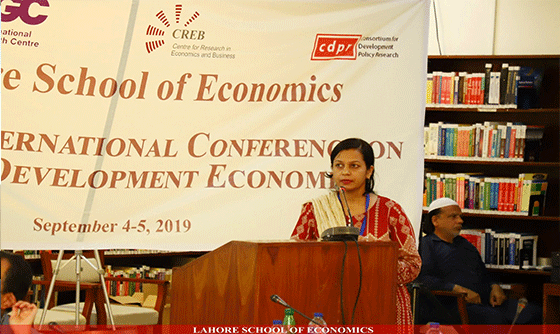
 People
People